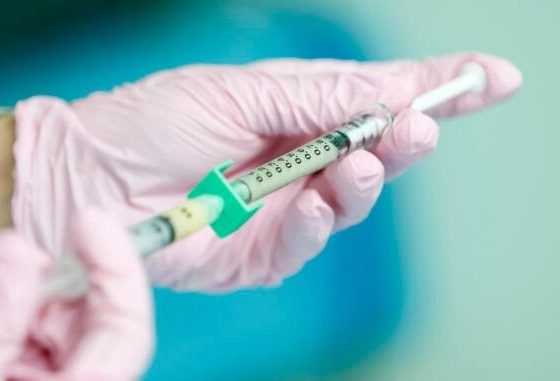A New Era of Virus: Monkeypox

It’s important to get vaccinated to help slow the spread of severe diseases. Courtesy of DU Clarion
As life is slowly starting to go back to normal, the last thing that anyone would want would be another virus. And that’s exactly what happened. On May 17th, 2022, the outbreak of monkeypox was confirmed. Monkeypox is an infectious disease that can be spreaded through people and even animals. There are 63,117 global cases, with 24,203 of those taking place in the US.
So what exactly is Monkeypox? According to the World Health Organization,“ Monkeypox is a viral zoonosis (a virus transmitted to humans from animals) with symptoms similar to those seen in the past in smallpox patients, although it is clinically less severe”. Monkeypox is in the same family of the variola virus, which causes smallpox. Compared to smallpox, Monkeypox symptoms are milder and are not considered to be fatal and Monkeypox is not similar or related to chickenpox. According to The New York Times, “ Smallpox occurs only in humans, while Monkeypox also occurs in animals. The existence of an “animal reservoir” means there will always be the risk of spread to humans, said Dr. Michael T. Osterholm, an infectious disease expert at the University of Minnesota.”
How exactly does Monkeypox spread? It can spread through personal skin to skin contact with another person in many different ways. Some of those methods include intimate contact, hugging, kissing, and extended face-to-face contact. It can also be transmitted through direct contact with someone who has it through rashes, scabs, and body fluids. Monkeypox can also be spreaded through touching objects and surfaces such as fabrics and bedding that has already been used by someone with monkeypox.
So what are signs/ symptoms of monkeypox? The most common symptoms so far are rashes that can be located in many areas including chest, feet, mouth, hands and feet. Starting out, the rash may appear to be a blister or pimple but it can still be painful and uncomfortable. Other symptoms of monkeypox include fever, chills, exhaustion, muscle aches, headaches, and respiratory symptoms like a sore throat or congestion.
Unfortunately, Monkeypox is currently making its way around the country and the world, including San Jose, which is less than 10 miles away. And According ABC 7 News, Monkeypox is being spreaded through the San Francisco Bay Area. Monkeypox, as announced by CDC, may affect a certain group of people, “At this time, data suggest that gay, bisexual, and other men who have sex with men make up the majority of cases in the current monkeypox outbreak. However, anyone, regardless of sexual orientation or gender identity, who has been in close, personal contact with someone who has monkeypox is at risk”. Compared to COVID-19, which can affect anyone, Monkeypox has more of a direct affect specifically on gay or bisexual males. Despite the number of Monkeybox cases, there is luckily a vaccine that people can get. There are two vaccines currently available called “JYNNEOS and ACAM2000” which can both provide a good level of protection against the virus. According to the CDC, getting vaccinated would 100% guarantee protection from monkeypox, “Vaccination is an important tool in preventing the spread of monkeypox. Because it’s not known how effective these vaccines will be in the current outbreak, people who are vaccinated are encouraged to continue to protect themselves from infection by avoiding close, skin-to-skin contact, including intimate contact, with someone who has monkeypox”. In summary, you may want to get vaccinated if you have been in any close contact with someone who has Monkeypox.
Many scientists also believe that due to the lack of federal funds for researching the virus, it’s hard to predict the end of the outbreak, “This is the first time that we really have seen a large outbreak of monkeypox with sustained human-to-human transmission, and there remain many scientific unknowns” says activist James Krellenstein. Dr. Wafaa El-Sadr, a professor of epidemiology and medicine at Columbia University’s Mailman School of Public Health also mentioned how it may be hard for certain populations to receive the vaccine, “ “The risk is that you have these populations that are hard to reach, often the poor and people of racial and ethnic minorities who are less aware, have less access. They tend to sometimes fall behind, as we are seeing, in terms of vaccination.” Overall, there’s a chance to get the outbreak under control if we’re able to get to other harder to reach populations.
With COVID still in the air and monkeypox floating around, it’s important to stay safe and get vaccinated to prevent the spread of both viruses. If everyone does their own part, we will be able to eliminate both viruses and leave behind this pandemic once and for all.





